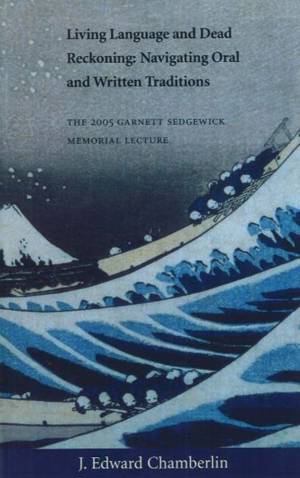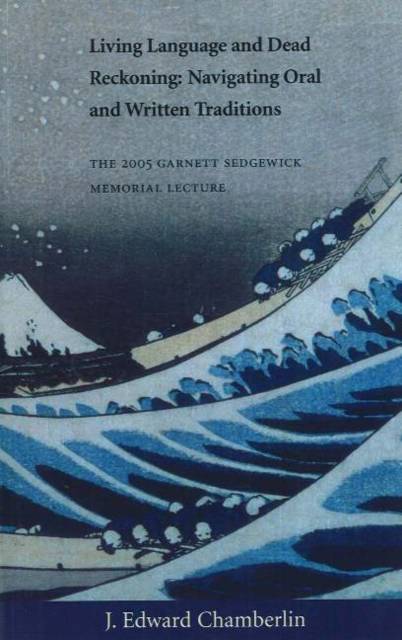
- Afhalen na 1 uur in een winkel met voorraad
- Gratis thuislevering in België vanaf € 30
- Ruim aanbod met 7 miljoen producten
- Afhalen na 1 uur in een winkel met voorraad
- Gratis thuislevering in België vanaf € 30
- Ruim aanbod met 7 miljoen producten
Zoeken
€ 11,45
+ 22 punten
Omschrijving
In this highly personal essay, Ted Chamberlin asks some old, old questions such as "why do we need stories and songs?" Turning frequently to First Nations people, he looks at their culture and asks what it means to listen. In response, he notes that we take great pleasure in the comforts of narration, of finding our way within a story, a kind of "dead reckoning" out at sea when the fog rolls in and we experience "being almost lost." Much of the essay focuses on people from around the world who have often been described as pre-literate. Chamberlin takes issue with this view and argues that such people "read" a whole host of signs and stories, and that in understanding how this reading takes place we can understand something of our own habits of reading and listening. Whereas scholars such as McLuhan and Ong have claimed that such cultures are "imprisoned in the present," Chamberlin points out that this is demonstrable nonsense. All cultures are both oral and written, he argues, and knowledge comes from both listening and reading. Employing his own position as a "teller of tales" he asks whether we believe the teller or the tale, and draws attention to the importance of not only the storyteller but also the community of listeners. For Chamberlin, Living Language and Dead Reckoning, the publication of the Garnett Sedgewick annual lecture for 2005 at the University of British Columbia, is the first step towards a "history of listening."
Specificaties
Betrokkenen
- Auteur(s):
- Uitgeverij:
Inhoud
- Aantal bladzijden:
- 36
- Taal:
- Engels
- Reeks:
Eigenschappen
- Productcode (EAN):
- 9781553800378
- Verschijningsdatum:
- 1/09/2006
- Uitvoering:
- Paperback
- Formaat:
- Trade paperback (VS)
- Afmetingen:
- 146 mm x 229 mm
- Gewicht:
- 453 g

Alleen bij Standaard Boekhandel
+ 22 punten op je klantenkaart van Standaard Boekhandel
Beoordelingen
We publiceren alleen reviews die voldoen aan de voorwaarden voor reviews. Bekijk onze voorwaarden voor reviews.











